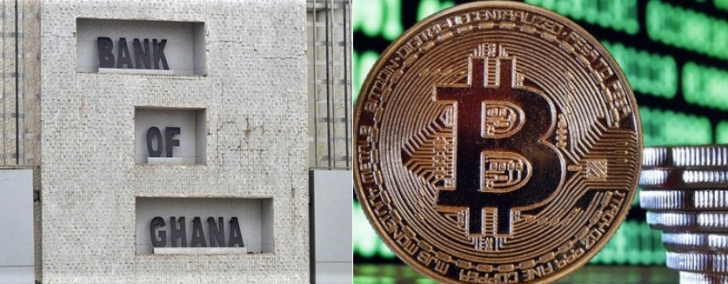adverts
The Bank of Ghana (BoG) has officially registered more than 100 virtual asset service providers (VASPs) as part of a new regulatory framework designed to oversee the country’s expanding cryptocurrency market.
The announcement was made in a release dated November 5, 2025, alongside a comprehensive policy document titled “Ghana’s Policy Position on Virtual Assets and Service Providers”. The framework represents Ghana’s first coordinated national approach to regulating cryptocurrencies, tokens, and related digital technologies.
According to the central bank, the registration exercise—conducted in July 2025—identified over 100 companies offering services such as crypto exchange, digital wallet management, broking, and investment advisory to an estimated three million Ghanaian users.
adverts
To ensure effective supervision, the BoG will establish a new Virtual Assets Regulatory Office (VARO) tasked with monitoring the industry, enforcing compliance, and coordinating with other state institutions.
“The Bank recognises that virtual assets can no longer remain outside Ghana’s financial regulatory remit,” the policy paper stated.
“VARO will act as a link between government oversight and the virtual assets industry, working with agencies such as the Securities and Exchange Commission (SEC), Financial Intelligence Centre (FIC), Ghana Revenue Authority (GRA), and the National Communications Authority (NCA).”
The new policy marks a major shift in the bank’s stance. Between 2018 and 2022, the BoG repeatedly warned that cryptocurrencies were not legal tender, directing financial institutions to avoid processing crypto-related transactions. The 2025 policy, however, moves from caution to structured regulation — focusing on managing risks rather than banning the technology.
Under the framework, Ghana’s regulatory approach will be risk-based and activity-specific, meaning oversight levels will depend on the type and scale of services offered.
- High-risk activities such as trading and asset custody will face stricter licensing rules.
- while low-risk services will go through simplified registration procedures.
Despite the new framework, the BoG reaffirmed that virtual assets will not be recognised as legal tender in Ghana. The aim, it said, is to balance innovation with consumer protection, reduce exposure to fraud, money laundering, and terrorism financing, and maintain financial stability.
The policy also proposes the creation of a National Virtual Assets Literacy Initiative (NaVALI), to be developed with the SEC and the Ministry of Education. The initiative seeks to boost public awareness and financial literacy, particularly among young Ghanaians, who make up the largest share of crypto users.
The BoG’s move aligns Ghana with international best practices recommended by the Financial Action Task Force (FATF), the International Monetary Fund (IMF), and the Bank for International Settlements (BIS) — all of which advocate for regulated, transparent digital asset ecosystems.
By taking this step, Ghana joins a small but growing group of African nations—including South Africa, Kenya, and Nigeria—that are transitioning from unregulated crypto activity toward comprehensive oversight and innovation-driven governance.
The BoG emphasised that the registration of VASPs and establishment of the VARO mark “a new era of responsible innovation” in Ghana’s financial ecosystem — one aimed at building trust, protecting consumers, and positioning Ghana as a leader in Africa’s digital finance landscape.
Ghanas-Policy-Position-on-Virtual-Assets-and-Service-Providers
Click the link Puretvonline.com | WhatsApp Channel to join the WhatsApp channel
GOT A STORY?
Contact/WhatsApp: +233243201960 or manuelnkansah33@gmail.com


